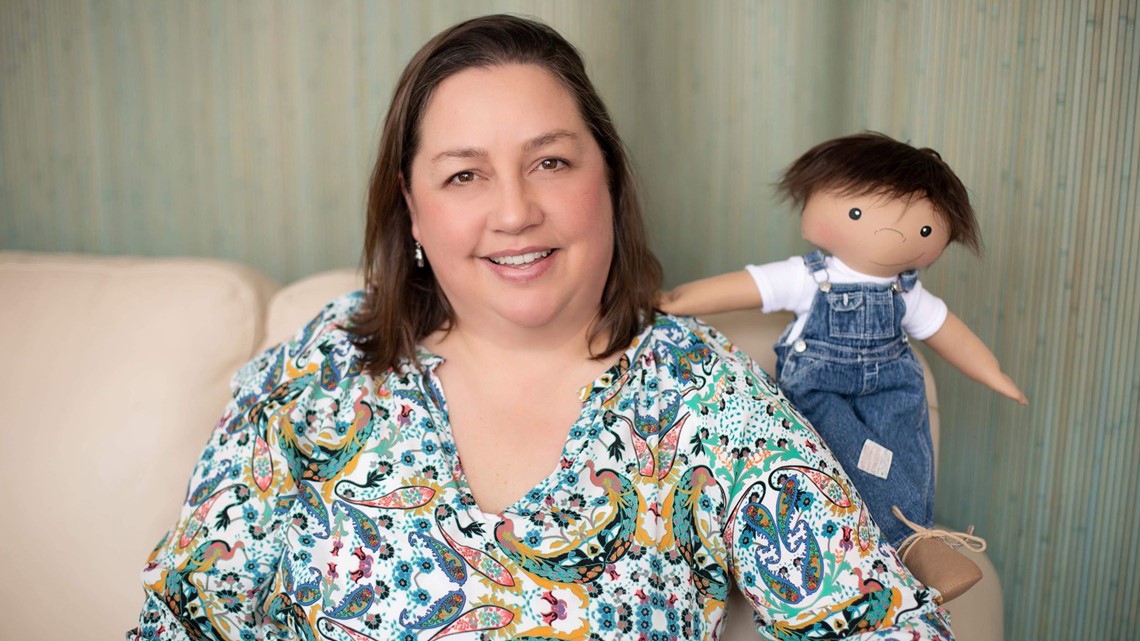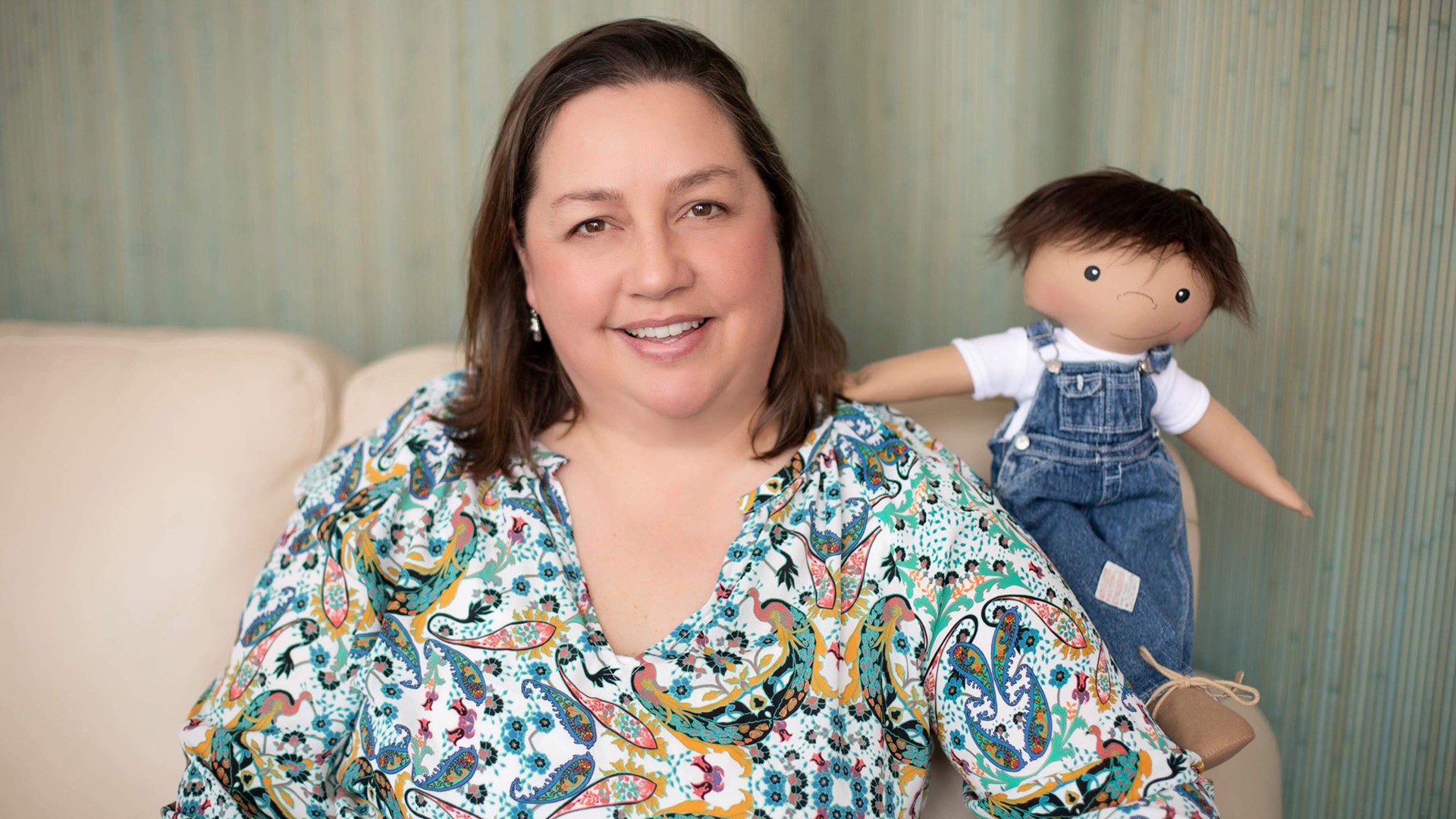Ever since she was a little girl, Amy Jandrisevits has loved dolls.
Her mother, a skilled seamstress, would make Amy her own stuffed friends. For years, she cherished them.
But when she started to outgrow dolls, Amy found a way to keep cultivating her hobby: She started making them herself, using sewing skills she learned from her mother.
The Wisconsin resident also grew up to pursue a career in social work, helping children with cancer during their hospital visits. There, Amy’s two passions merged as she used dolls as a form of play therapy with some of the young patients.
Play therapy is a therapeutic method that helps children process emotions they may not be able to express verbally, according to the Association for Play Therapy.
It’s a tool used by social workers and psychologists to help children feel comfortable while teaching them communication or problem-solving skills. During her time working in the hospital, Amy would use play therapy to help children understand diagnoses or upcoming procedures.
But often, she found it difficult to use the dolls available at the hospital because they looked different than many of the patients. The children might have scars, be missing their hair, or have medical equipment -- traits that weren’t represented in most dolls.
“I think that the ultimate way to tell a child that you really are perfect just the way you are is to say, ‘and here you go, here’s a doll that looks just like you,’” Amy said.


A few studies on the effect of dolls’ appearances on young girl’s self-image suggest a link between the two. A 2016 study found girls who played with full-figured dolls were more satisfied with their own bodies than girls who played with thinner dolls.
Another 2010 Dutch study found that girls ate less after playing with thin dolls as compared to peers who played with average-sized dolls.
Amy's frustration with the lack of inclusivity in store-bought dolls inspired her to start making inclusive dolls of her own. Initially, she began making diverse dolls with a variety of skin tones and hair textures. Then, she started working with a limb difference organization to make dolls for children missing arms and legs.
After posting photos of her dolls on Facebook, her work quickly sparked interest online. Soon after, she began her own business called A Doll Like Me.
Suddenly, Amy was inundated with requests for dolls with all types of personalized features like feeding tubes, missing limbs, wheelchairs and scars. Amy estimates she’s done at least 300 dolls in total since she began A Doll Like Me.
“People said, ‘I’ve looked my child’s whole life for something like this,’” she said.
Each doll takes her about 6-8 hours in total to make, sometimes longer for more specialized requests. Amy spends hours studying photos of the recipients, many of whom she will never meet. After completing each doll, Amy says she feels a connection to the families and children.
“I’m invited into a very private part of people’s lives and I don’t take that for granted,” she said.
That's one of the reasons why Amy set up a GoFundMe page to help raise money to pay for a doll for families who can’t afford them.
Each personalized creation costs between $75-$100, but Amy realizes many families may be dealing with financial strain as they care for their child. She doesn’t want A Doll Like Me to function as a business in the traditional sense, but instead as a way to give back to families who are navigating hospital visits and medical procedures.
Since starting the fundraiser, donations from the GoFundMe have totaled more than $108,000.
Amy also hopes A Doll Like Me can spread a larger message about inclusion for kids who look different.
“In theory, we say you’re beautiful inside and out, but… when we don’t provide things with something that looks the way they do, it sends a mixed message,” she said.
“As a bigger society, we should be able to look into the eyes of these kids and see ourselves, or our family, or our children.”
To learn more about A Doll Like Me, or to order a doll, click here.
HeartThreads are the best stories about the best of us.
Want more? Follow us!

